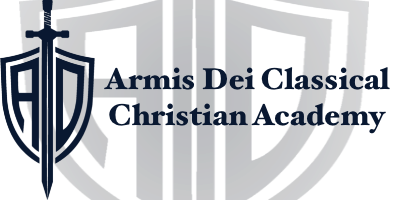School Management of Medications Policy
General Medication Information
- ADCCA desires for the parents/legal guardians to consider a medication administration plan which avoids or minimizes school-day doses. This will limit and provide fewer classroom disruptions and ensure a more academic focus for the student.
- It is the responsibility of the parent/legal guardian to provide, at a minimum, a yearly review and update the student’s health and medication information with the school records.
- Cough drops must be provided by the parents/legal guardians with a note to administer them to the student. (Refer to Medication Administration later in this policy.)
- Students are not to self-carry or self-administer medications; see exceptions under Medication administration, later in this policy.
- Medications given to the student during the school day must be in an appropriately labelled container. (Refer to Medication Administration later in this policy.)
- Medications given to the student during the school day must have the appropriate form completed and submitted to the office. (Refer to the Medication Documentation, later in this policy.)
- Medication Authorization Forms and other Health Plan forms are available at the school office.
Medication Authorization and Health Plan Forms
Please contact the office for any necessary forms.
Medication Documentation
The following information gives additional details regarding the Authorization Forms listed above in the Medication Authorization and Health Plan Forms.
- Written instructions, a parent/legal guardian’s signature, and a licensed prescriber’s signature are required for the administration of:
- Prescription medication and OTC medication that is to be given daily for greater than 10 school days, or
- Nonprescription drug product in a dosage other than the recommended therapeutic dose on the label, regardless of the number of days given, or
- Prescription medication to be given as needed for the school year, or
- Medication product that contains aspirin.
- Written instruction and a parent/legal guardian’s signature are required for administration of prescription or OTC medications to be given daily for less than 10 school days. The licensed prescriber’s signature is not required unless the recommended therapeutic dose differs from the OTC label.
- Written instructions should include:
- The name of the drug and its strength.
- The dose to be given.
- The approximate time medication is to be taken.
- The diagnosis or reason the medication is needed.
- A list of adverse effects that may be reasonably expected.
- Contraindications in administering the medication.
- Parent/legal guardian authorization and acknowledgement is required by signing and dating the Authorization Form.
- Medications without completed form(s) in the areas described in the policies above (as applicable) will not be given and will be sent home.
- Authorization for prescription, OTC medication and stock OTC medications must be obtained annually and when changes occur.
Medication Administration
- All prescription medications must be supplied in a correctly labeled pharmaceutical container. It should include: student’s name, medication name, medication strength, medication dose, frequency/time of administration, method of administration, directions, and current date. When asked, pharmacies will create a “school” label/container.
- All OTC medications must be in their original container and should include the manufacturer’s label with ingredients, dosing recommendations, and possible drug interactions adn/or warnings. The student’s name will be written on the container, by the office.
- A self-injectable epinephrine device or inhaler may be self-carried and be self-administered by the student if authorized by the student’s licensed practitioner.
- Cough drops and throat lozenges may be self-carried and self-administered with a note from the parent/legal guardian. The note must include the student’s name, date, request, and a parent/guardian’s signature. Privileges will be revoked if the student shares his/her lozenges.
- Whenever possible, parents/legal guardians should hand-deliver prescribed and OTC medication to the student’s teacher.
School Responsibilities
- All medications (prescription and OTC) will be administered to the student by one of the following:
- ADCCA school personnel designated by the headmaster, or
- A parent or legal guardian of the student.
- School personnel authorized by the headmaster to administer medication to students shall see that the medication is given within 30 minutes before or after the time specified by the Medication Authorization Form.
- All medications will be stored in a secure location and inside a securely locked, clean container or cabinet accessible to the persons administering it but not to unauthorized persons.
- Controlled substances shall be counted and reconciled when a refill is brought in, with verification by another school personnel. The amount of medication and initials of personnel who verified the medication count shall document the above information.
- All Medication Authorization and Health Plan Forms will be retained with ADCCA, in a locked location for four years.
- Unused medication not picked up by the parent/legal guardian within 5 business days after the completion of the school year or when the medication has been discontinued will be properly destroyed and disposed of by ADCCA.
